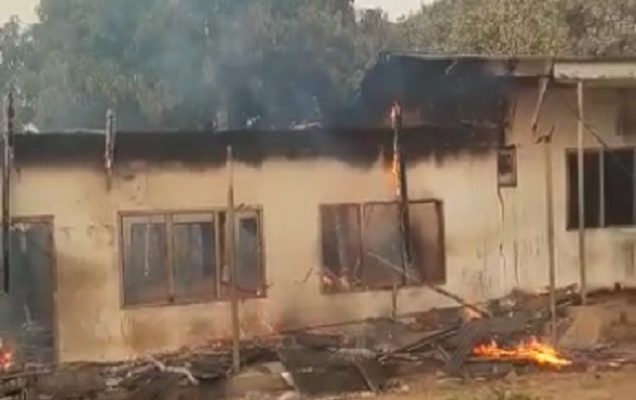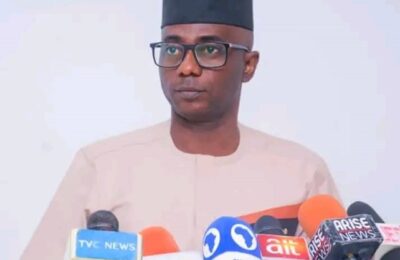In Nigeria today, the blood of the innocent cries louder than the footsteps of cattle. With every dawn, families mourn their lost ones, villages are reduced to ash, and the silence of government inaction speaks volumes. The Nigerian state, entrusted with the sacred duty of protecting its citizens, now seems more like a negligent observer than a guardian. The most damning indictment is not just its failure to end the senseless killings by Fulani herders, but its eerie complicity — a silence that roars louder than gunfire.
What does it mean when those who kill sleep peacefully while those they kill live in constant fear? It means a nation has traded its conscience for cowrie shells. It means the sword of justice has rusted on the altar of tribal politics. And worst still, in hushed conversations and brazen declarations, some Fulani herders now claim ownership of the earth itself. “We are the owners of the land. We are the owners of the world,” they whisper with audacity — a claim as dangerous as it is delusional, but one that rings unchecked in a nation where power bends its knees before cattle.
This is not just arrogance; it is a philosophy of conquest wrapped in herding ropes. It is a statement that mocks the graves of slain children and scorched elders. It is a claim that dares the constitution, ridicules citizenship, and replaces democracy with tribal supremacy. Yet the state listens not with indignation but with indulgent calm, as if human life is a negotiable currency and the Nigerian soul a dispensable burden.
The government’s continued inability to stem these killings or hold any significant actor accountable is not a result of ignorance — it is a manifestation of deliberate aloofness. Entire communities have been wiped out in Benue, Plateau, Southern Kaduna, Taraba, and parts of the Middle Belt, but justice remains an absentee tenant in a house built on impunity. The message from the state is clear: the grass beneath cattle hooves is more sacred than the blood beneath broken bodies.
Every Nigerian now lives in a metaphor. A metaphor where cows roam free, and citizens move with fear. A country where human breath is cheaper than cow dung. While the nation grapples with economic decay, unemployment, collapsing education, and an overwhelmed health sector, the herder menace metastasizes like a plague, often with security agencies playing blind. Where the police should arrest, they retreat. Where the military should intervene, they delay. Where government should speak, it mumbles.
The deep entanglement of the Fulani herders within Nigeria’s political topography is neither hidden nor innocent. These are not just pastoral nomads in search of green pastures. They are now heavily armed, organized, and shielded by a system that fears to confront them. This fear — or alliance — breeds violence. It legitimizes lawlessness. It opens the floodgates for more audacious proclamations: “We own Nigeria. We own the government. We own the world.”
This is no longer a whisper; it is an anthem among some extremists emboldened by power and silence. And every time government agencies refuse to arrest or prosecute, they fuel this dangerous theology. A theology that paints the Nigerian space as a Fulani inheritance and the rest of the nation as squatting tenants.
And so the farmer buries his last son beside the remains of his yam barn. The widow learns to sleep with one eye open. Children now recognize the sound of gunfire before they know how to spell “Nigeria.” And in Abuja, laws are written, but not for those who believe they are above the law.
Even the policy frameworks, like the infamous Ruga settlement scheme, favor cattle settlements more than IDP camps for displaced humans. While killers get settlements, victims get silence. While cattle get land, farmers get bullets. And where the constitution should scream, it barely whispers.
This is not the Nigeria our ancestors dreamt of. This is a betrayal stitched in government robes and coated with tribal perfume. Governance has become selective. National unity is now a myth. Protection is for a few; the rest must learn to protect themselves or perish. If government cannot protect lives, then its legitimacy is as empty as the promises recycled every election cycle.
To allow a group — any group — to claim ownership of a sovereign nation is to spit on the graves of our independence heroes. It is to hand over the flag of unity to tribal warlords. It is to sow a whirlwind that no one will escape. What begins with a claim to the land often ends in genocide. And if we continue on this dangerous path, Nigeria may soon wake up to a day where cows vote, and corpses form the electorate.
The solution is neither in silence nor in sentiments. It is in the bold reinvention of leadership. The Nigerian state must rise from the ashes of cowardice and reclaim its mandate. Security must be impartial. Justice must be blind to tribe. And governance must serve the governed — not the herders.
Until then, we are not citizens. We are statistics. We are names on shallow graves, songs on protest placards, and whispers in government corridors. Nigeria cannot afford this hemorrhage of humanity. The soul of the nation is bleeding, and her leaders must decide: protect the people or perish with your pride.
– Inah Boniface Ocholi writes from Ayah – Igalamela/Odolu LGA, Kogi state.
08152094428 (SMS Only)




